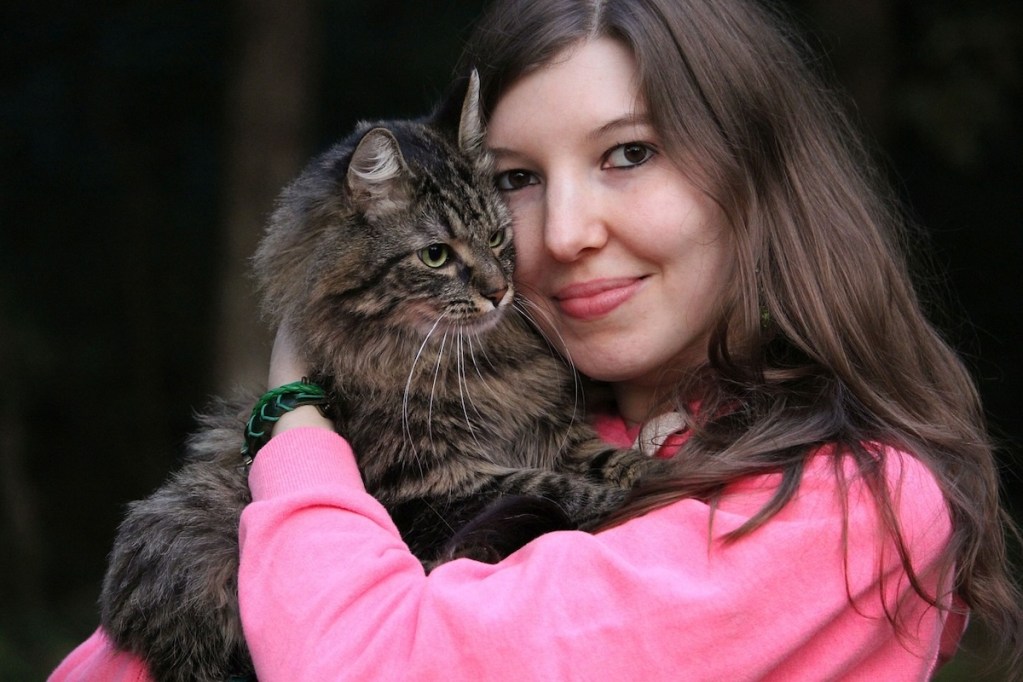While our opinions may differ on innumerable issues, there is a universal constant we can all agree on: No one enjoys suffering from allergies. If you’re dealing with itchy eyes, a running nose, constant sneezing, coughing, wheezing, or even hives, then you’re suffering from an allergy to something in your immediate environment.
Maybe it’s just pollen, but it can also be … your cat. Cat allergies are relatively common, but just because someone in your family has cat allergies doesn’t mean you have to give up your dream of being a cat parent. From bathing your cat to allergy treatments, there are a few tips you can use to limit exposure to allergens. Even better, you might even find the purr-fect solution waiting for you in a local shelter. Keep reading to learn more about hypoallergenic cats for adoption.

Should I adopt a cat if I’m allergic?

How do you adopt a cat if you have allergies?
If you’re allergic to cats, it’s important to understand just what is prompting an allergic reaction. NBC10 Boston explains that while many people believe that cat hair creates an allergic reaction, they’re actually more likely reacting to cat dander, saliva, tears, and urine. Your cat releases an allergen called “Fel d 1” every time he grooms himself or uses the litter box. That allergen gets sent into the air, and it also lands on your cat’s skin and hair. When you breathe that air or touch the hair or dander that contains the allergen, you may have an allergic reaction.
The bad news? All cats produce this allergen, so no cat breeds are truly hypoallergenic. The good news is that some cats tend to produce less of the allergen than others. A lot of this comes down to genes and sex may also be a factor. However, don’t believe the myth that a light-haired cat will be a better fit. There’s no evidence to support this and you may end up with a kitty that causes the sniffles.

Can you get hypoallergenic rescue cats?
Finding a hypoallergenic cat to adopt can take some time. Again, realize that no cats are truly hypoallergenic. NBC10 Boston explains that some breeds, like the Balinese, Bengal, Burmese, and Siberian, tend to produce less of the Fel d 1 allergen than other breeds, but they can still prompt allergic reactions.
These breeds are rarer, but you can occasionally find them in rescues. You’ll need to be patient and vigilant, and chances are you may need to travel a good distance to adopt one of these hard-to-find cats. Look for breed-specific rescues and contact them to see if they have any cats available for adoption or if they can put you on a waiting list. For example, there are several Bengal rescue groups throughout the US. Connecting with these groups, following their social media listings, and checking their websites regularly might help you find a cat in need of a good home.

What is the cheapest hypoallergenic cat?
Since no cat is hypoallergenic, rather than buying a purebred cat, you might find that the cheapest option is to adopt a cat from a shelter. One good option is to talk to rescue staff or get information from previous owners on the cat’s allergy levels. You may also be a good candidate for a foster-to-adopt situation, which will allow you to bring the cat home to make sure he’s a good fit first.
The American College of Allergy, Asthma & Immunology recommends that you work to control your allergies by keeping your cat out of your bedroom, washing your hands immediately after patting your cat, frequently vacuuming your home to reduce allergen levels, and continuously running a HEPA cleaner in your bedroom or living room. If your cat will tolerate it, bathing him once or twice a week will help to reduce the amount of allergen that he can release in your home.
Living with allergies doesn’t mean that you have to live without a cat, but you do need to be strategic in how you adopt and care for a cat. Be sure to talk to your doctor about treatments, such as allergy medications or even allergy shots, that can make it easier to share a life with your cat. When it comes to adopting a cat, be upfront with the shelter about what you’re looking for in a cat and the importance of a cat that releases lower amounts of allergens. Most shelters will be happy to work with you to ensure that your new cat is a great match for your needs — and that you’re a great fit for the cat’s needs, too.



